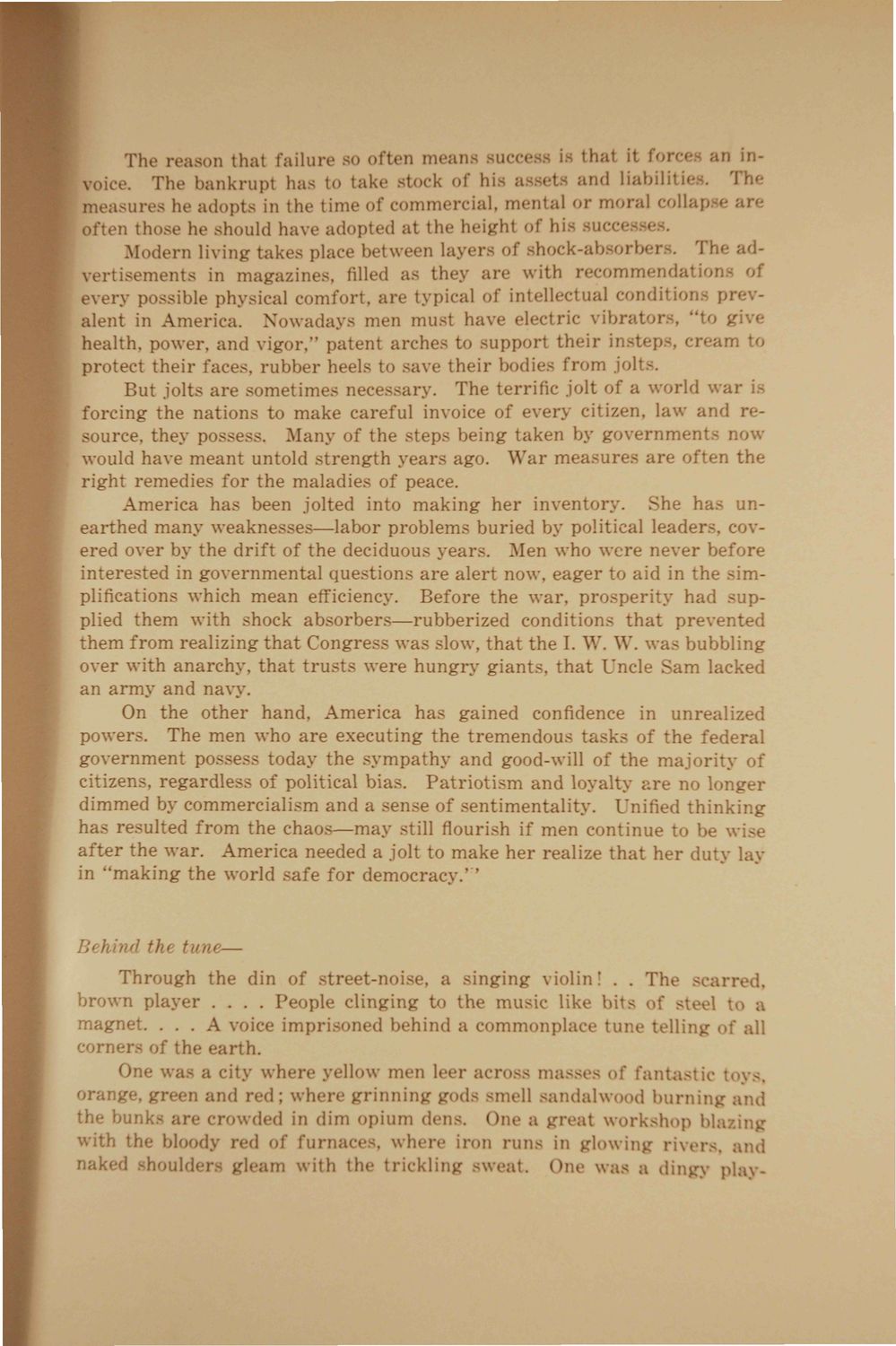| |
| |
Caption: Magazine - Illinois Magazine Selections #2 (1917)
This is a reduced-resolution page image for fast online browsing.

EXTRACTED TEXT FROM PAGE:
The reason that failure SO often n. ins success is that, it foran invoice. The bankrupt has to take stock of his a • I and liability . The measure he adopts in the time of commercial, mental or moral collapse a n >ften those he should have adopted at the height of hit MCCl Modern living takes place between layers of Bhock-absorbei The advertisements in magazines, filled as they are with n :ommendationfl of every possible physical comfort, are typical of intellectual condition previlent in America. Nowadays men must have electric vibrators, "to give health, power, and vigor." patent arches to support their inste] cream b protect their faces, rubber heels to save their bod: from joll But jolts are sometimes necessary. The terrific jolt of a world war i forcing the nations to make careful invoice of every citizen, law and resource, they possess. Many of the steps being taken by governments now would have meant untold strength years ago. War measures are often the right remedies for the maladies of peace. America has been jolted into making her inventory. She has unearthed many weaknesses—labor problems buried by political leader-, covered over bv the drift of the deciduous years. Men who were never before interested in governmental questions are alert now, eager to aid in the simplifications which mean efficiency. Before the war, prosperity had supplied them with shock absorbers—rubberized conditions that prevented them from realizing that Congress was slow, that the I. W. W. was bubbling over with anarchy, that trusts were hungry giants, that Uncle Sam lacked an armv and navv. On the other hand, America has gained confidence in unrealized powers. The men who are executing the tremendous tasks of the federal government posse today the sympathy and good-will of the majority o citizens, regardk 3 of political bias. Patriotism and loyalty are no longer dimmed by commercialism and a sense of sentimentality. Unified thinking has resulted from the chaos—may still flourish if men continue to be wise after the war. America needed a jolt to make her realize that her duty lay in "making the world safe for democracy.' ' Be) the tune— Through the din of street-noise, a singing violin! . . The scarred, brown player . . . . People clinging to the music like bits of 1I magnet. . . . A voice imprisoned behind a commonplace tune telling f all ornere of the earth. One was a city where yellow men leer across masses i)\' fantastic or green and red; where grinning godfl smell sandalwood burning and the are crowded in dim opium dens. One a great workshop hi; ing with the bloody red of furna where iron runs in glowing rivers, an. nak shoulden gleam with the trickling sweat. One was a dingy phr
| |